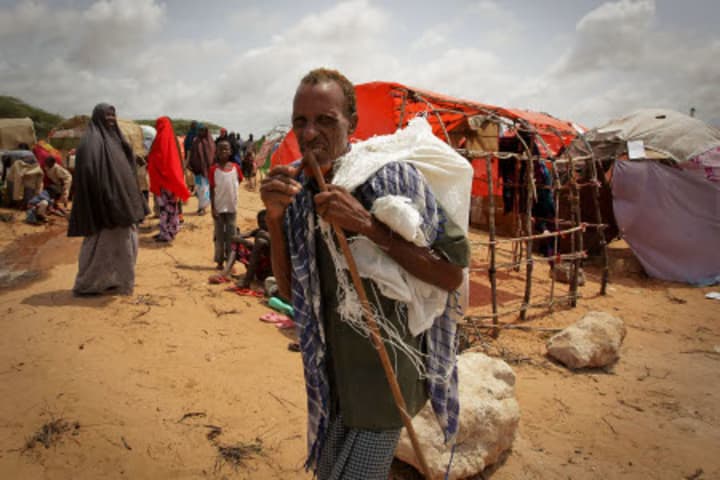
Good news: The World Food Program is reporting a surge of donations for the response to the food crisis in the Horn of Africa.
Bad news: The number of people facing famine in the region has grown to 11.6 million.
The World Food Program said July 28 that it had received pledges worth $250 million over the last few days. The funds exclude those promised before the declaration of famine in some parts of Somalia. In all, WFP has $252 million for its Horn of Africa activities over the next six months.
“We are seeing the world coming together to help curb rising levels of hunger and malnutrition across the Horn of Africa,” said Ramiro Lopes da Silva, WFP’s deputy executive director for external relations and resource mobilization, as quoted by the U.N. News Center.
More funding promises for the relief efforts in the region were announced Thursday: another 200 million Swedish kronor ($31.5 million) from Sweden, €66 million from Spain ($94.6 million), and up to $1 million from the American Red Cross.
However, each day sees an increase in the number of people affected by the crisis. Two weeks earlier, UNICEF estimated that nearly 11 million people were at risk of starvation. The latest U.N. estimate indicates a rise of more than half a million across Ethiopia, Djibouti, Kenya and Somalia.
Somalis appeal: Channel aid to local groups
The Somali Relief and Development Forum, an umbrella group of nine Somali non-governmental organizations, has called on global relief agencies to channel aid through local groups in Somalia.
“There are divisions within al-Shabaab and there are Somali NGOs that are able to work around al-Shabaab and bypass them, but there is hardly any international engagement with these local NGOs,” said Mustakim Waid, a spokesman for the forum, according to the Guardian.
Although aid from WFP finally made it to Somalia on Wednesday, the U.N. agency said it cannot reach 2 million needy Somalis. It added that it may try to access rebel-held areas over the next week, and but will also considering dropping food from aircraft as a last-resort option.
WFP is among the aid groups banned by al-Shabab from working in the areas it controls.
UN denies holding up aid
The United Nations has denied it is preventing aid from reaching Somalis suffering from the drought, as alleged by the country’s prime minister.
Abdiweli Mohamed Ali accused the United Nations of hoarding supplies and not distributing them to drought victims.
Amir Mahmoud Abdulla, the chief operating officer of WFP, told Al-Jazeera that the food in the agency’s warehouse “looks like a lot but actually it’s not a lot of food.”
He added: “To somebody who is just sort of maybe not as familiar with food distribution, it may look like stockpiling … There have been some unfortunate media portrayals of this as if it was stockpiling. … I can assure you there would be no purpose for stockpiling in a situation like this. … The World Food Program takes this function very, very seriously. We are basically the life line and food that we have in our supplies we’ll get to people wherever we can.”
Read more development aid news online, and subscribe to The Development Newswire to receive top international development headlines from the world’s leading donors, news sources and opinion leaders – emailed to you FREE every business day.




